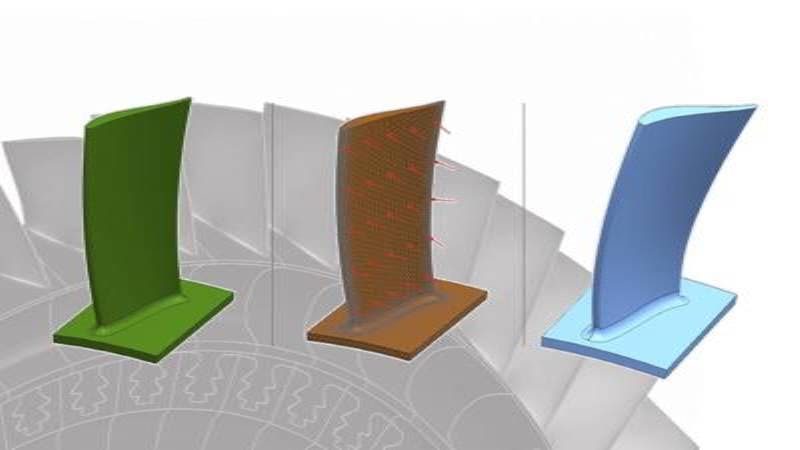Efficient blade shapes are key to designing efficient turbines. Compressor blade geometry is first defined for the operating, hot shape. This must be reverse engineered to the cold blade shape before manufacturing, which often requires an iterative finite element approach. In this webinar, hear how Siemens Energy use Simcenter to perform hot to cold conversion in a single analysis step. This approach is up to five times quicker than a standard iterative method, with the same level of accuracy.
Learn more on our hot to cold deformation and blade durability solutions
You will learn:
- How Siemens Energy perform hot to cold deformation analysis in a single step
- Why a close-coupled connection between CAD and simulation data speeds up deformation analysis and increases productivity
- Validation of stress and model analysis results against other solvers
Determine blade manufacturing shape and applied loads
One of the key design criteria for engine blades is that they are able to perform a certain number of design cycles without failing due to stress fatigue. In this webinar hear how Siemens Energy use Simcenter solutions to identify the high stress regions and engine loads. They also share results from validation studies for their mechanical stress model.
Hear from an expert from Siemens Energy
Meet the speaker

Simon Jackson
Principal Analytical Engineer
Simon Jackson is a Principal Analytical Engineer for mechanical integrity at Siemens Energy Industrial Turbomachinery Ltd, UK. He received his Bachelor of Engineering degree in Mechanical Engineering in 1990 from Staffordshire University and since then has been working at the gas turbine facility in Lincoln, firstly on package design and the past 20 years on stress, life and vibration analysis of compressor/turbine blades and discs. He is an Associate member of the IMechE.
